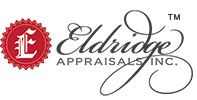Estate Appraisals: taxable or not, an appraisal of the tangible personal property of an estate is prudent and will provide peace of mind or a legal foundation.
We understand that this is a very sensitive time for families; however the realities of life are still present. Eldridge Appraisals Inc. recommends that immediately after a loss, a professional appraiser is allowed to review the personal property prior to removal of anything from a residence. Previously unrecognized valuable personal property is regularly discovered by our appraisers and is brought to the attention of the beneficiaries. Eldridge Appraisals Inc. never buys or sells anything and we do not have any financial interest in the property being appraised. Our reports will prove what does not exist as much as what does.
Appraisals of personal property including fine arts, automobiles, antiques and other collectibles assist with the equitable distribution and are often required by IRS regulations to support values claimed on estate or gift tax returns.
- The costs of appraisals are deductible expenses on estate tax returns and sometimes in estate planning (e.g., family limited partnerships).
- From the client’s perspective, a good appraisal provides the client some insurance against an IRS audit and professional support in case of an audit and should be included in all estate plans.
- The independence, expertise and experience of the appraiser are critical to establishing a credible value in an appraisal (and the IRS knows the difference).
- Often the appraiser can assist the attorney in structuring an estate plan that will maximize the tax benefits for the client by providing the attorney with strictly a “value” point of view.
- Only employ appraisers that are accredited by a professional organization such as the ASA, RICS or AAA and are certified in that area of specialization.
Often an appraisal provides the client with a benchmark of value for his or her assets so that subsequent appraisals will illustrate the growth or decline in value.
If the estate you are handling has some significant objects of art, antiques or vehicles and other items, you will either need to divide them equitably in some way, sell them or donate them to charity for a tax deduction, or a combination of all.
To keep everyone happy, the objects should be redistributed in the optimal way, and it is best to retain a professional appraiser to help assess the situation and recommend the best course of action. They will need to be appraised by a certified ASA, RICS or AAA appraiser who does not have any financial interest in the property, that excludes auctions, estate sellers or dealers. Do not rely on old insurance estimates as the property was valued at replacement comparables and most likely will be grossly overvalued and would not be appropriate for estate purposes.
Many valuable items were never on the insurance policy to begin with and unless examined by a professional appraiser could be overlooked and if discovered after the fact will greatly complicate the process. Conversely, items believed to be of great value by the family often after review by a professional ASA, RICS or AAA appraiser turn out not to be worth what the family thought. Value or not personal property is often the main factor that slows or delays the prompt settlement of many estates, taxable or not. A certified appraisal is a legal document and must include, among other things, the appraiser’s qualifications. Also important is that the appraiser’s fee not be contingent on a value conclusion, nor should the appraiser have any involvement in the sale of the item, since this is considered an unacceptable conflict of interest.


